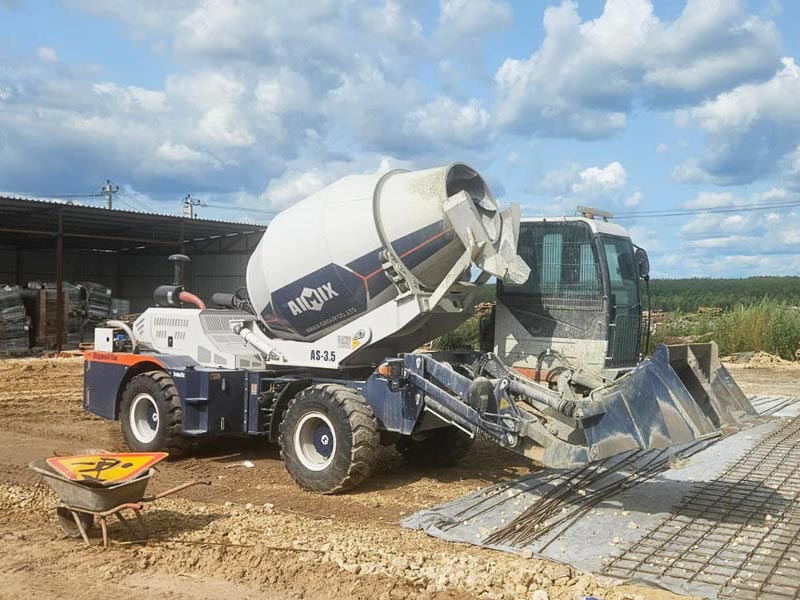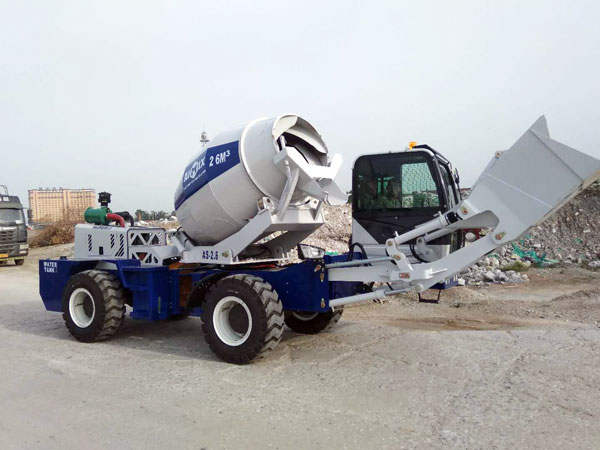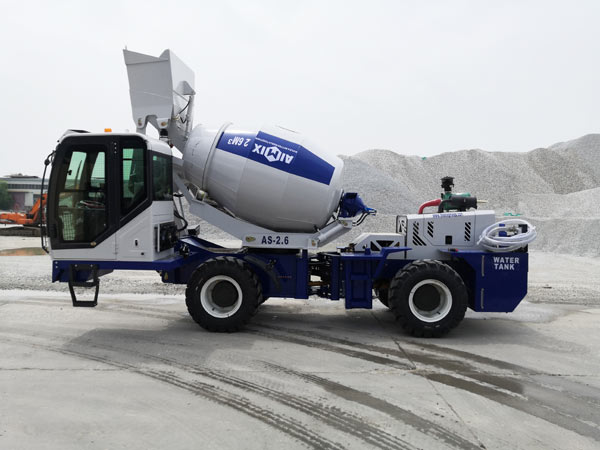Selecting the right concrete mixer boosts productivity and saves money. Different projects demand different solutions – from the concrete self loading mixer to portable concrete mixers. This guide helps you make informed decisions.
Modern mixers offer impressive versatility. Whether you need mobility, power, or convenience, there’s an ideal model available. Let’s explore your best options.

Understanding Concrete Mixer Types
Four main categories dominate today’s market. Each serves specific project requirements:
1. Self-Loading Concrete Mixers
These all-in-one units load, mix, and pour independently. They eliminate need for additional equipment, saving time and labor costs.
2. Mobile Concrete Mixers
Mounted on trucks or trailers, they deliver concrete anywhere. Volumetric models mix on-site for fresh batches.
3. Portable Concrete Mixers
Compact and lightweight, they work in tight spaces. Electric and gas models suit different power needs.
4. Hydraulic Concrete Mixers
Powerful systems handle tough mixing jobs. They maintain consistent quality under heavy loads.
Key Selection Factors
Consider these aspects before choosing:
Project Size Matters
Small jobs need a portable concrete mixer. Large-scale work requires self-loading or mobile concrete mixers.

Site Conditions
Rough terrain favors the mobile mixer concrete. Limited access sites need portable units.
Concrete Quality Requirements
The hydraulic concrete mixer machine ensures precise mixing. They’re ideal for critical structural work.
Budget Considerations
Portable mixers cost less upfront. Self-loading models save long-term labor expenses.
Innovations in Concrete Mixer Technology
Modern mixers now feature smart upgrades:
- Automated water measurement systems
- Remote monitoring capabilities
- Fuel-efficient engines
- Advanced safety features
- Quick-clean designs
These improvements boost productivity while reducing operating costs.
Maintenance Tips for Longevity
Proper care extends mixer lifespan:
- Clean after every use
- Check fluid levels regularly
- Inspect wear parts monthly
- Store in dry conditions
- Follow manufacturer schedules
Well-maintained equipment delivers better performance year after year.

Making Your Final Decision
Answer these questions:
- What’s your daily concrete requirement?
- How often will you relocate the mixer?
- What power sources are available?
- What’s your budget for purchase and operation?
Your answers will point to the ideal mixer type.
Conclusion
Choosing between self-loading, mobile, portable, and hydraulic concrete mixers depends on your specific needs. Consider project scale, site conditions, and budget carefully.
The right mixer improves efficiency and concrete quality. It reduces labor costs and project timelines. Invest time in selecting the perfect match for your requirements.
Smart equipment choices lead to successful construction projects. Evaluate your options thoroughly before making this important decision.